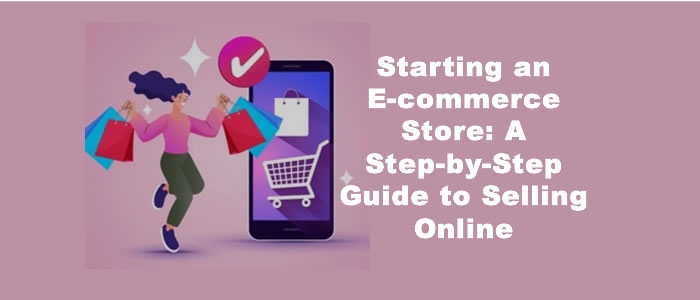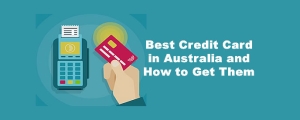
The Digital Marketplace Revolution. The world of business has transformed dramatically, with e-commerce taking center stage in global trade. In Nigeria and across Africa, the rapid adoption of mobile technology, improved internet access, and digital payment systems have made online shopping more accessible than ever.
From fashion and gadgets to digital products and groceries, millions of Nigerians now buy and sell online daily. Starting an e-commerce store today is not just a trend — it’s a profitable business opportunity that can reach customers beyond physical boundaries. However, many aspiring entrepreneurs hesitate because they don’t know where to start. This step-by-step guide will walk you through everything you need to know to build, launch, and grow a successful online store even if you’re a beginner.
Step 1 – Identify Your Niche and Target Market
The first and most crucial step in starting an e-commerce business is choosing your niche — the specific area or category you want to focus on. Selling to “everyone” rarely works. Instead, aim to serve a clearly defined group of customers.
Tips for Choosing a Profitable Niche:
Solve a problem: What challenges are people facing that your product can solve?
Follow your passion: Building a business around your interests keeps you motivated.
Check demand: Use tools like Google Trends, Jumia Insights, or Nairaland forums to see what people are buying.
Study the competition: Research similar stores and identify gaps you can fill.
Once you identify your niche, define your target market — their age, gender, lifestyle, and online behavior. For instance, if you’re selling skincare products, your target audience might be young professionals aged 20–35, active on Instagram and TikTok.
By narrowing your focus, you can create marketing messages and products that truly resonate with your audience.
Step 2 – Choose the Right E-commerce Platform
After identifying your niche, the next step is choosing the platform to host your store. There are several options depending on your budget, skill level, and goals.
Popular E-commerce Platforms:
Shopify: Easy to use, perfect for beginners. Offers templates, payment integration, and marketing tools.
WooCommerce (WordPress): Great for people who already have a WordPress website. Offers flexibility and customization.
Wix eCommerce: A drag-and-drop builder with beautiful templates.
BigCommerce: Designed for growing businesses that need scalability.
Selar or Paystack Storefront: Nigerian-friendly options for selling digital and physical goods with local payment support.
Key Considerations When Choosing a Platform:
- Pricing and transaction fees
- Payment gateway support (Paystack, Flutterwave, etc.)
- Ease of customization
- Mobile responsiveness
- Customer support
Your platform is your digital storefront — choose one that matches your business size, tech skills, and long-term vision.
Step 3 – Set Up Your Online Store
Now it’s time to bring your business to life. This involves creating a brand identity, adding your products, and setting up essential store features.
Steps to Set Up Your Store:
Register Your Business Name: Get a CAC registration in Nigeria to appear credible and professional.
Secure a Domain Name: Choose a simple, memorable name (e.g., www.glowbeauty.ng
Design Your Website: Use appealing visuals, a clear layout, and easy navigation.
Upload High-Quality Product Photos: Good images can double your conversion rate.
Write Compelling Product Descriptions: Highlight key benefits and features.
Set Up Payment Options: Offer secure and local payment gateways (Paystack, Flutterwave, or Interswitch).
Establish Delivery Options: Partner with logistics services like GIG Logistics, Kwik, or DHL for reliable delivery.
Don’t forget to include trust signals — such as customer reviews, refund policies, and SSL certificates — to build confidence with your buyers.
Step 4 – Market Your E-commerce Store
Launching a store is only half the job; getting people to visit and buy is the real challenge. Effective marketing helps you attract, engage, and retain customers.
Key Marketing Strategies:
Social Media Marketing: Promote your products through Instagram, Facebook, and TikTok. Use attractive visuals and influencer collaborations.
Search Engine Optimization (SEO): Optimize your website so customers can find you easily on Google.
Email Marketing: Collect customer emails and send updates about new arrivals or promotions.
Paid Advertising: Use Google Ads or Facebook Ads to reach a targeted audience.
Content Marketing: Share useful blogs, videos, or tutorials that position you as an expert in your niche.
Leverage Marketplaces:
If you’re just starting out, consider listing your products on platforms like Jumia, Konga, or Jiji alongside your website. This can help you gain exposure and build a customer base faster.
Remember, consistency is key. Marketing is not a one-time activity but an ongoing process.
Step 5 – Manage, Scale, and Sustain Your Business
After setting up and launching your e-commerce store, focus on long-term growth and sustainability.
1. Monitor Performance:
Use analytics tools (like Google Analytics or Shopify Insights) to track website traffic, sales, and customer behavior. Identify what works and what needs improvement.
2. Offer Excellent Customer Service:
Respond quickly to inquiries, resolve complaints professionally, and follow up after sales. Happy customers often become repeat buyers.
3. Build Trust and Brand Loyalty:
Offer loyalty programs, discounts, or referral rewards to encourage repeat purchases.
4. Innovate Constantly:
Stay updated on new e-commerce trends like mobile shopping, AI chatbots, or personalized recommendations. Adapt your strategy to stay competitive.
5. Plan for Expansion:
As your business grows, consider adding new product lines, expanding into international markets, or developing your own mobile app.
Conclusion: Starting an e-commerce store in today’s digital economy is one of the smartest ways to achieve financial independence and business growth. With careful planning, the right tools, and consistent marketing, anyone can build a profitable online brand.
From choosing your niche to marketing and scaling, every step plays a crucial role in your success. Whether you’re in Lagos, Abuja, or any part of Nigeria, the opportunity to build your e-commerce empire has never been better. Start today your online store could be the next big brand in Nigeria’s digital marketplace!


 .jpg)




 Essential Certifications And Education For Advancing In Business
Essential Certifications And Education For Advancing In Business  Workplace Soft Skills That Make You Stand Out in the Business World
Workplace Soft Skills That Make You Stand Out in the Business World  Best Investment Opportunities To Grow Your Money
Best Investment Opportunities To Grow Your Money